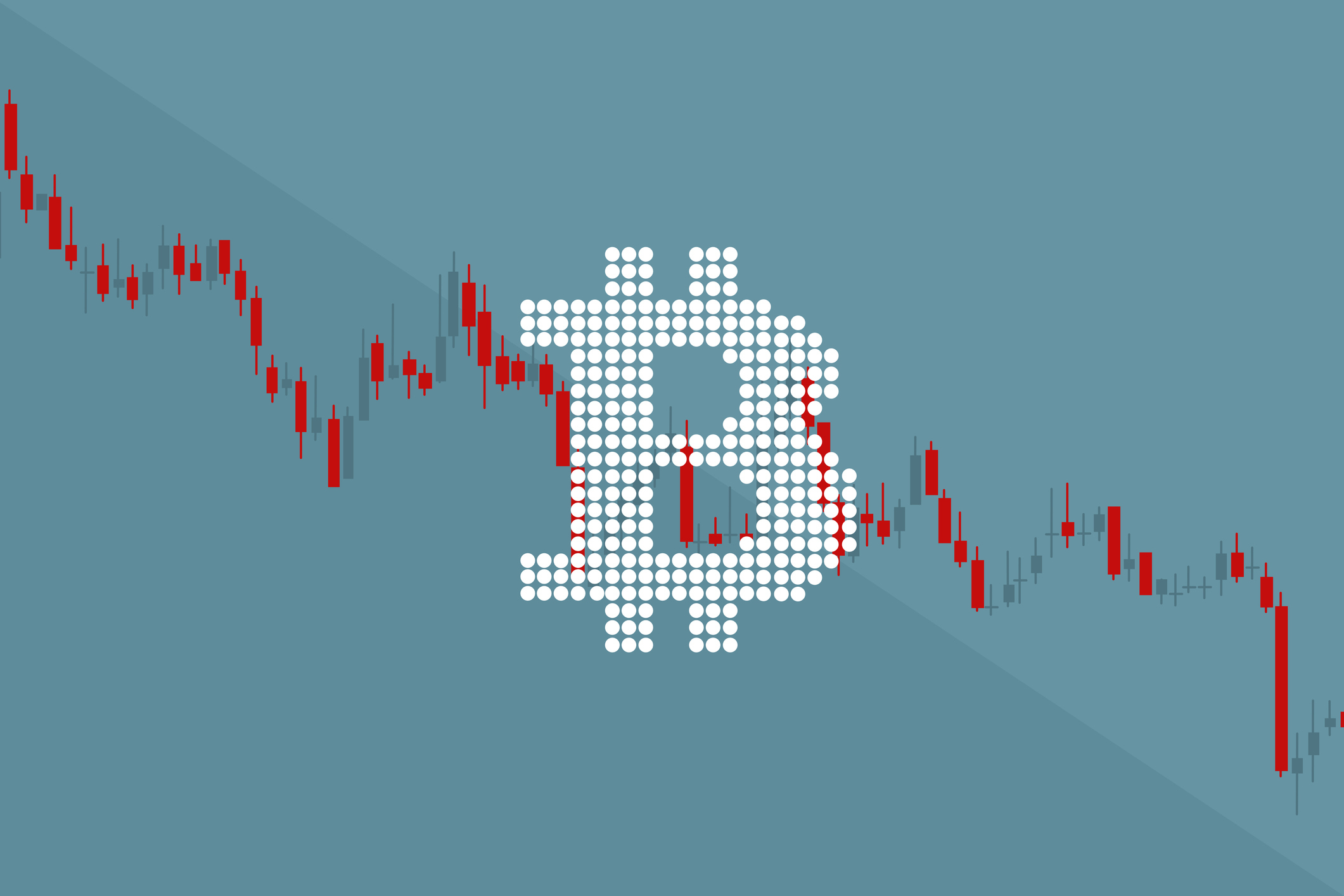ETH’s highest price since 2022

Japan’s national legislature is weighing a new economic reform bill that includes a crypto provision. [Toshiro Shimada via Getty Images]
There’s never a dull moment on the blockchain. Here’s what you need to know this week:
ETH hit $3,000 for the first time since 2022. Optimism over spot ETFs and blockchain upgrades could be driving the rally.
International crypto headlines in focus. The latest updates from Australia, South Korea, Japan, and the U.K.
This week in numbers. The percentage of Californians who own digital assets, the amount of venture capital pouring into crypto, and more stats to know.
ETH UPDATE
ETH rallies above $3,000 as hopes for ETF grow
For the first time since April 2022, Ethereum crossed the $3,000 mark on Tuesday. The second-largest cryptocurrency by market cap is up roughly 12% in the last week and 30% in the past month as traders have become increasingly bullish about two major catalysts that are on the horizon: the potential arrival of spot ETH exchange-traded funds (ETFs) and an upcoming network upgrade.
Let’s dig in.
Spot ETH ETF hopes are rising.
Finance heavyweights including BlackRock, Franklin Templeton, Ark Invest, and Invesco are seeking SEC approval for spot ETH ETFs.
Like the spot BTC ETFs that began trading to huge success in January, the new products would buy ETH and sell shares via conventional brokerages, allowing a wide range of investors access to Ethereum, from massive hedge funds to individual IRA holders.
The SEC is obligated to make a decision on some of those applications by May 23. Bloomberg ETF analyst Eric Balchunas, who covered the run-up to the approval of BTC ETFs, estimates a 70% chance of approval.
As the SEC deadline approaches, British banking giant Standard Chartered anticipates that ETH’s price could rally, mirroring the monthslong rally bitcoin saw prior to the approval of spot BTC ETFs in the U.S.
ETH ETFs may be especially appealing to Wall Street.
Some analysts believe that ETH has potential to become a favorite among institutional investors, reports CoinDesk.
According to Bernstein analysts (who believe there’s a “near-certain probability” of approval in the next 12 months), ETH’s flexibility could make it a hit with Wall Street traders: “Ethereum with its staking yield dynamics, environmentally friendly design, and institutional utility to build new financial markets, is well positioned for mainstream institutional adoption.”
ETH’s staking mechanism, for example, could pave the way for new types of ETFs where yield is paid out to shareholders.
ETH’s user activity is heating up.
As ETH’s price surges, so are transactions on its blockchain — a sign that users are actively engaging with applications across the Ethereum ecosystem.
Since the start of February, the seven-day moving average for ETH’s blockchain transaction volume is up roughly 27 percent, from $3.08 billion to $3.92 billion, as of February 21.
In that same span, the total value locked across the many DeFi apps that run on ETH has risen from $32 billion to more than $45 billion. Uniswap, the decentralized exchange, is currently the most popular app on Ethereum, with around 3 million transactions in the past month (a 16% boost from the prior month).
A major Ethereum upgrade could slash fees.
Traders are also awaiting ETH’s forthcoming Dencun upgrade, which is currently planned for mid-March.
Dencun, which is the next step of ETH’s yearslong product roadmap, includes an innovation called “proto-danksharding,” which aims to help solve Ethereum’s scaling issues by making it more efficient for the network to move and store data. Importantly, the move should also slash transaction costs.
Analysts estimate the upgrade could help make transactions cheaper by around 50 to 90 percent. And as Ethereum continues to build out its roadmap, co-founder Vitalik Buterin says its developers could soon begin to rely on artificial intelligence, particularly to verify code and identify potential bugs.
The bottom line…
As the broader crypto market continues to grow, Ethereum’s time to shine could be approaching. Historically, after underperforming BTC in the earlier part of bull trends, ETH often flips to a period of overperformance.
Some analysts think that time is now, with ETH’s seven-day performance more than doubling BTC’s 6% gain in that same span.
GLOBAL SCENE
ETF buzz grows in Australia and South Korea, while Japan and U.K. seek regulatory clarity
The arrival of spot BTC ETFs in the U.S. hasn’t just been big news here — it’s influencing regulators and consumers in other regions to consider approving similar products. This week, we’re looking at ETF buzz in South Korea and Australia, and digging into some crypto policy updates in Japan and the U.K.
Here’s what you need to know.
BTC optimism rises in Australia ahead of likely ETF debut.
The Independent Reserve Cryptocurrency Index, an annual survey of Australians’ opinions about crypto, shows that “25% of Australians view bitcoin more favorably after the [U.S.] spot bitcoin ETF approval in January,” reports Coindesk.
Australia has actually had a spot BTC ETF since 2022, but the product (the Global X 21Shares Bitcoin ETF) has less than $55 million (AUD) under management — potentially because it trades on CBOE Australia, an alternative to the nation’s primary ASX exchange.
This year, analysts are expecting the approval of one or more spot ETFs that will trade on ASX, which could bring far more liquidity into the products.
South Korea’s ruling party may campaign on spot BTC ETF approval.
According to new reports in Korean media, the ruling People Power Party plans to campaign on loosening crypto restrictions as part of an effort to appeal to younger voters.
Per the Block, the party’s potential plans include a “pledge to eliminate the ban on spot bitcoin ETFs, institutional investment in crypto, and initial exchange offerings” and another two-year deferral on certain crypto capital-gains taxes.
The U.K. government is on the path to providing clarity on crypto regulation.
This week, speaking at an event hosted by Coinbase, Economic Secretary to the Treasury Bim Afolami said that the government was “pushing very hard” to pass rules around stablecoins and staking in the next six months.
Staking is likely to be classified in a new way that “avoids [it] being considered a collective investment scheme,” Coinbase’s vice president for international policy, Tom Duff Gordon, told Bloomberg.
Asked about a timeline on broader crypto regulation beyond stablecoins and staking, Afolami said “there’s just a huge amount going on, so I don’t want to commit to that now.”
Japan proposes crypto-friendly legislation.
As Blockworks reports, a pro-crypto policy that would “allow investment firms to directly hold crypto assets” is part of a new economic reform bill from Japan’s Ministry of Economy, Trade, and Industry that is now under consideration in the country’s national legislature.
“The inclusion of crypto assets in the legal framework not only legitimizes their use in institutional investment strategies but also positions Japan as a forward-thinking player in the global digital assets space,” said Sota Watanabe, the founder of Astar Network. “This is a crucial step for enriching and nurturing the national industry.”
NUMBERS TO KNOW
$2.5 billion
The inflows into digital asset investment products last week, setting a new record for weekly inflows, according to CoinShares. Following these record inflows, “several U.S. spot bitcoin ETFs saw all-time high volumes on Tuesday,” reports Blockworks.
$1.9 billion
Amount of venture capital funding raised by crypto companies in the final quarter of 2023, a 2.5% increase over the prior quarter. It was the first time that VC funding for crypto startups has risen in consecutive quarters since March 2022.
$40.8 million
Value of the native OP tokens the layer-2 network Optimism distributed via an airdrop to users this week. Nearly 23,000 users qualified for the airdrop, which was aimed at rewarding NFT creators and had a maximum allocation worth around $23,640.
8.2 million
Number of California adults (27% of Californians) that report owning digital assets, according to new research from Morning Consult. An overwhelming 86% of all crypto owners in the state agree that the global financial system needs to change.
3,100
The number of Walmart stores that will sell toys from the Pudgy Penguins NFT collection. The 30 different toys, which range from $2.99 to $11.97, are licensed from holders of the NFTs. Pudgy Penguins is the third most-valuable NFT collection on the market.
TOKEN TRIVIA
When was the first time bitcoin crossed $50,000?
A
2023
B
2022
C
2021
D
2020
Find the answer below.
Trivia Answer
C
2021
Coinbase Bytes
Your weekly digest of crypto news
Learn how we collect your information by visiting our Privacy Policy











